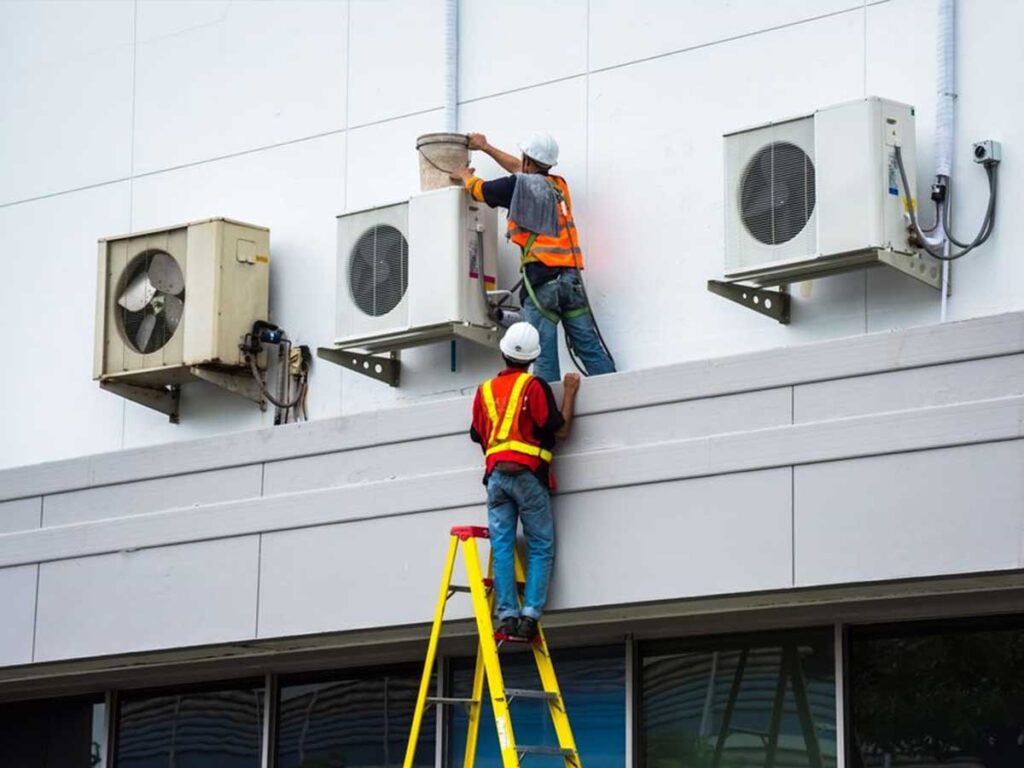In the modern workplace, productivity is the cornerstone of success. As organizations strive to maximize their output, they often overlook a critical factor that can significantly impact employee productivity: the office HVAC Heating, Ventilation, and Air Conditioning system. An optimal HVAC system is not just about keeping the office comfortable; it can have a profound influence on employees’ ability to concentrate, think clearly, and perform at their best.

Comfort is Key: The most obvious way an optimal HVAC system boosts productivity is by providing a comfortable work environment. When temperatures are too hot or too cold, employees become distracted, uncomfortable, and less focused on their tasks. An HVAC system that can maintain a comfortable temperature range can help keep distractions at bay and maintain productivity levels.
Improved Air Quality: A well-maintained HVAC system filters out contaminants and circulates fresh air throughout the office. This means fewer allergens and pollutants in the air, reducing the likelihood of employees getting sick or suffering from allergies. Healthy employees are more likely to stay productive and not take sick days.
Regulated Humidity: An optimal HVAC system also controls humidity levels. High humidity can make employees feel sluggish and uncomfortable, while low humidity can lead to dry skin and respiratory issues. Maintaining the right humidity level contributes to a comfortable work environment that supports productivity and go to page.
Consistent Airflow: Uneven airflow can lead to hot spots and cold spots in the office, which can be a constant source of distraction. Optimal HVAC systems ensure consistent airflow, preventing these discomfort zones and helping employees stay focused on their work.
Noise Reduction: Modern HVAC systems are designed to operate quietly. A noisy HVAC system can be a major distraction, making it difficult for employees to concentrate. An optimal system minimizes noise, providing a quieter and more productive workspace.
Energy Efficiency: A well-designed HVAC system is energy-efficient. This not only reduces operational costs but also aligns with environmental sustainability goals. When employees know their workplace is environmentally conscious, it can boost morale and overall productivity.
Customized Control: Many advanced HVAC systems allow for individual temperature control in different zones of the office. This customization ensures that employees can adjust the temperature to their personal preference, further enhancing their comfort and focus.
Proactive Maintenance: Regular maintenance of HVAC systems is crucial to keeping them in optimal working condition. A proactive maintenance plan can identify and address issues before they become major problems, ensuring a consistent and productive work environment.
Adaptability: As office layouts change and work patterns evolve, HVAC systems need to adapt. Optimal systems are flexible and can be adjusted to meet the changing needs of the workspace, ensuring comfort and productivity in a dynamic environment.
In conclusion, an optimal office HVAC system goes beyond simple temperature control. It creates a comfortable, healthy, and distraction-free environment that directly contributes to higher productivity levels among employees. Investing in a well-designed and maintained HVAC system is an investment in your workforce, and the benefits in terms of productivity and employee satisfaction are well worth it. So, whether you are designing a new office space or upgrading an existing one, do not overlook the critical role that HVAC systems play in keeping your team productive and engaged.